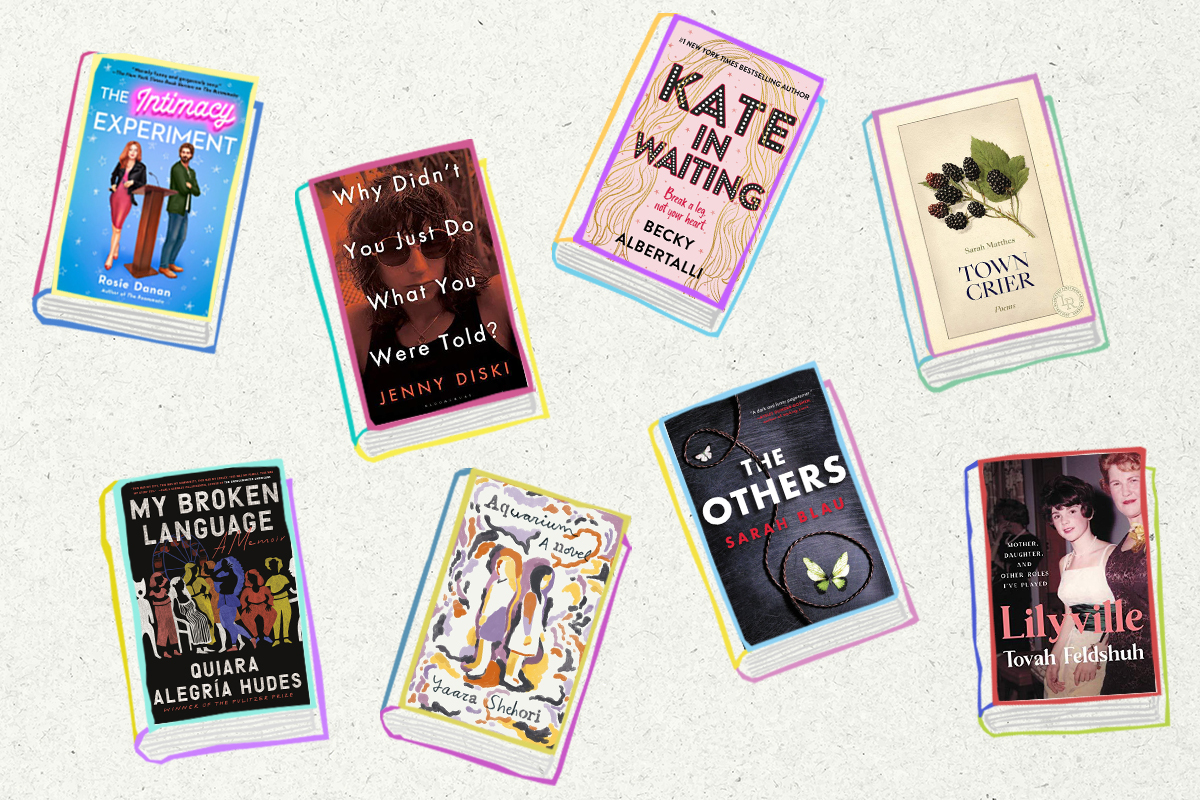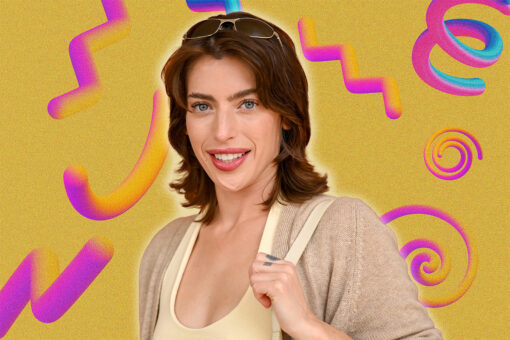As an avid reader of books, and of most anticipated books lists, I am excited to introduce a new series at Alma: the most anticipated Jewish books of each month! We’ll be spotlighting new Jewish books that we highly recommend each month. Along with our seasonal book previews (for our most anticipated books of spring 2021, go read this list), it’s an exciting time for people who love to read.
What exactly is a Jewish book, you ask? Good question. For our purposes, if a book has Jewish content or is written by a Jewish author, that my friends is a Jewish book.
For April 2021, we’re kicking it off with eight books across all genres we’re excited about, plus some other notable releases you might want to check out. This list is all shoppable on Bookshop, a platform supporting local bookstores.
Jewish books we’re excited about in April 2021:
1. Aquarium by Yaara Shehori (translated from Hebrew by Todd Hasak-Lowy) (April 13)
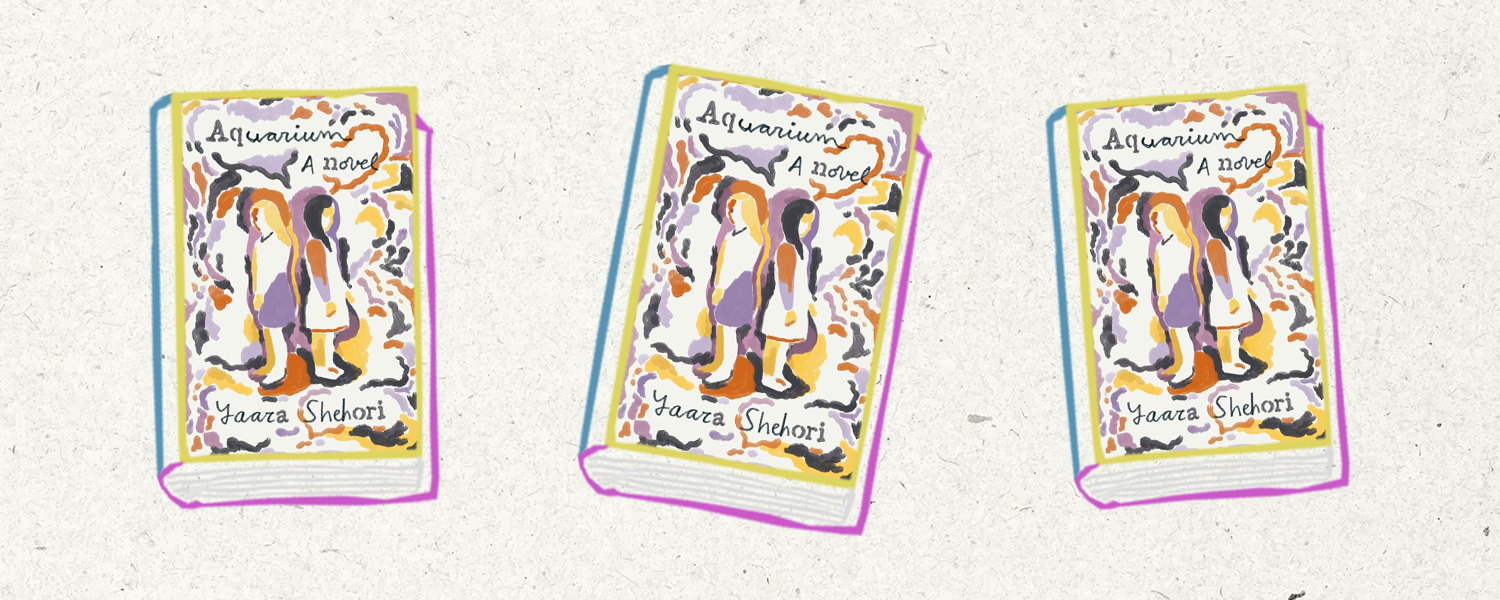
Aquarium is a fascinating coming-of-age tale of two Deaf sisters finding their way in a hearing world. In a small town in Israel, Dori and Lilli grow up isolated from the outside world. Their parents, Anna and Alex, are also Deaf, and Alex is adamantly opposed to any integration with the hearing world, preferring to homeschool his daughters. The novel is told through the alternating perspectives of Dori and Lilli as they grapple with their childhood and try to make their way in the world. Split up at a young age — for reasons many reviews spoil, but I think best left unspoiled!! — they struggle to find their way back to each other and make peace with their unorthodox childhood. A powerful story of sisters and broken families told from a promising young Israeli talent.
Read if you’re into: sisterhood, complex families, Deaf stories. The Jewish angle: set in Israel, featuring two Jewish sisters. Get it here.
2. The Others by Sarah Blau (translated from Hebrew by Daniella Zamir) (April 27)
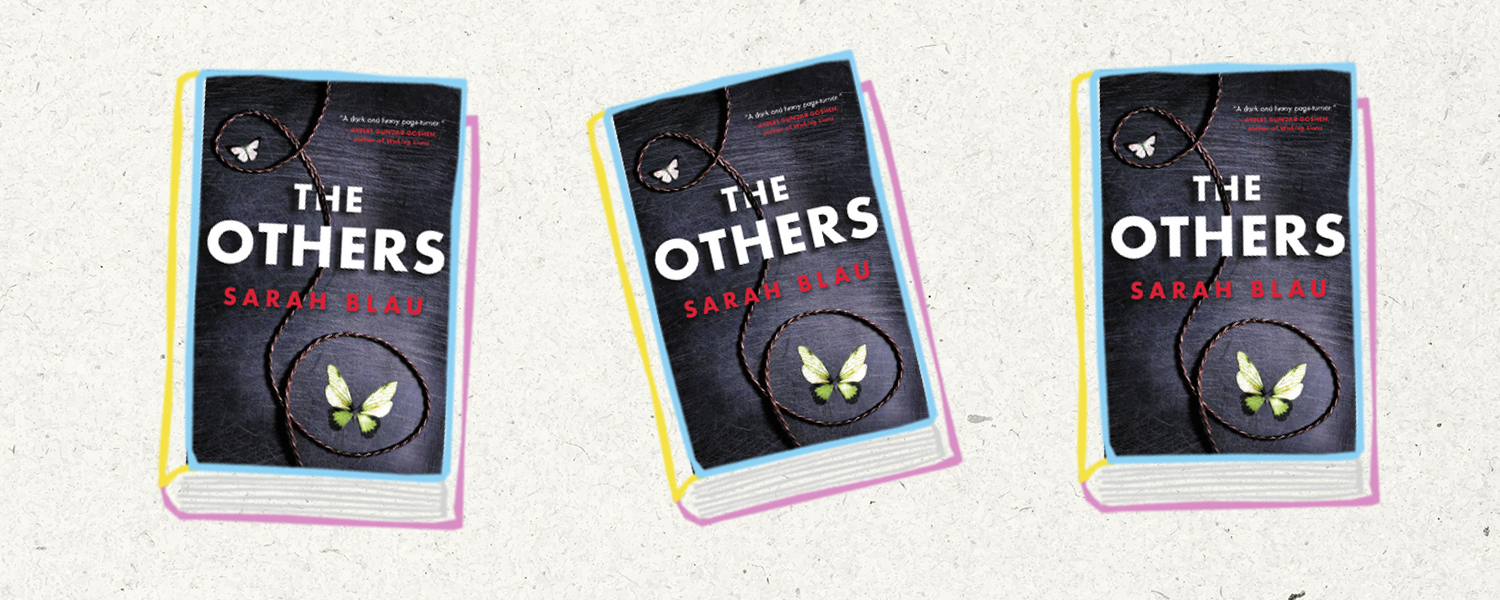
Israeli author Sarah Blau’s thriller opens with the grisly murder of Dina, a feminist Israeli scholar who proposed that the childless women of the Bible — like Miriam the prophetess and Michal, Saul’s daughter — were childfree by choice. Dina is found dead with a baby doll glued to her hand and the word “mother” scrawled on her forehead. Soon, we meet Sheila, Dina’s college friend, who is our narrator and a suspect in the murder, as she had seen Dina that same night. Dina and Sheila and two others were part of a group in college called the Others, when they swore to a child-free life. I won’t give anything else away, because the story is best read knowing as little as possible. Sheila, like Sarah Blau herself, is from a religious family in Bnei Brak — and her religious background shapes her adulthood. It’s a thriller, yes, but also a story of the violent pressures of motherhood and Jewishness. Deeply compelling.
Read if you’re into: Jewish feminist thrillers!!! The Jewish angle: Literally the entire book. Get it here.
3. The Intimacy Experiment by Rosie Danan (April 6)
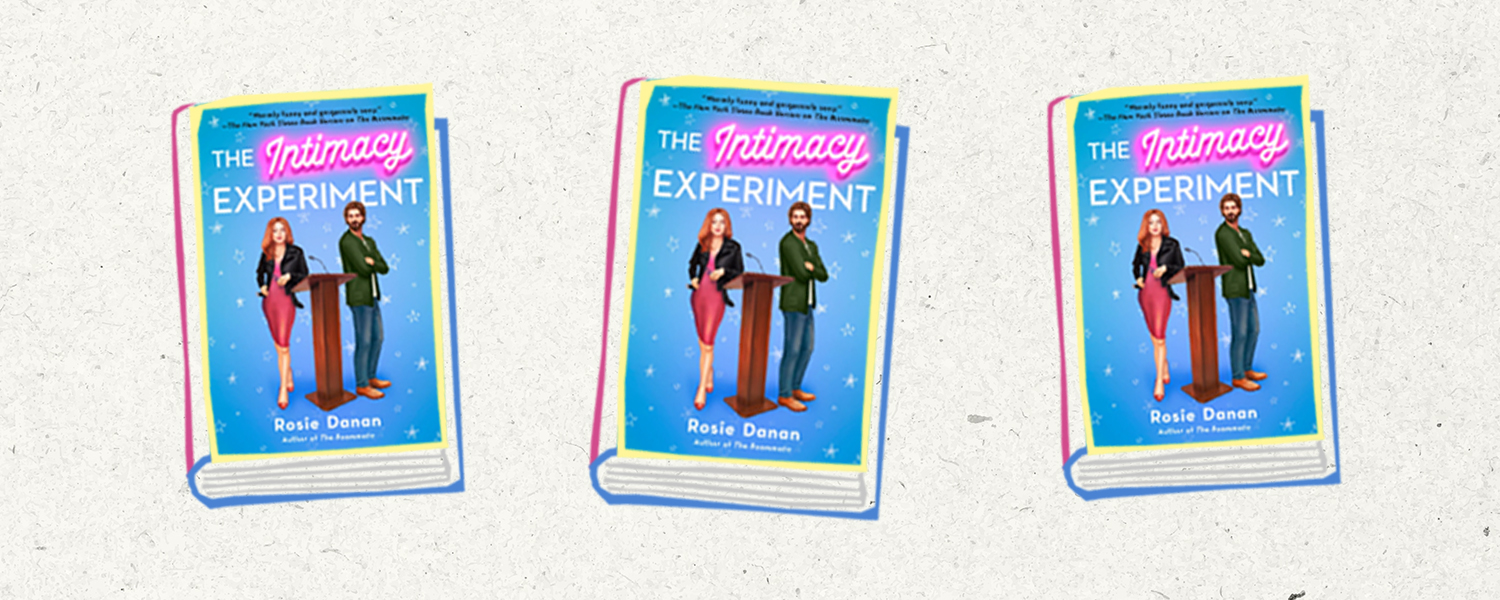
Romance author Rosie Danan returns with The Intimacy Experiment, featuring Naomi Grant, bisexual Jewish sex worker turned co-founder of a sex-positive start-up, and Rabbi Ethan Cohen, a very attractive rabbi struggling to keep his synagogue afloat. I loved this blurb over at Vulture, which made me instantly want to read: “When the handsome rabbi Ethan Cohen approaches her to teach a course on modern intimacy that he hopes will entice new blood to his synagogue, Naomi hesitates. Sex and religion, especially a religion she herself walked away from, don’t mix well, and this rabbi is way too hot for her not to corrupt. She decides to take the chance, and soon finds herself wondering: Who’s corrupting whom?” Danan tweeted that the book “is a celebration of Jewish love and Jewish friendship, Jewish families, Jewish traditions and Jewish food. There are queer Jews and Jews trying to figure out what their Jewish identity means and how it can evolve.” I loved Danan’s dedication to the women in her family: “For generations of Danan women who have been told they were ‘too much’ and still refused to dim their light.” Once I started reading, I couldn’t put it down — a stay-up-all-night kind of read.
Read if you’re into: Romance! Hot Rabbis!! Bisexual sex educators!! Jewish representation!!! The Jewish angle: Did you read what I just said? HOT RABBIS. Also, very much gets into the stress of Jewish institutions trying to attract millennials/younger generations. We love a romance with meaningful commentary! Get it here.
4. Why Didn’t You Just Do What You Were Told? by Jenny Diski (April 20)
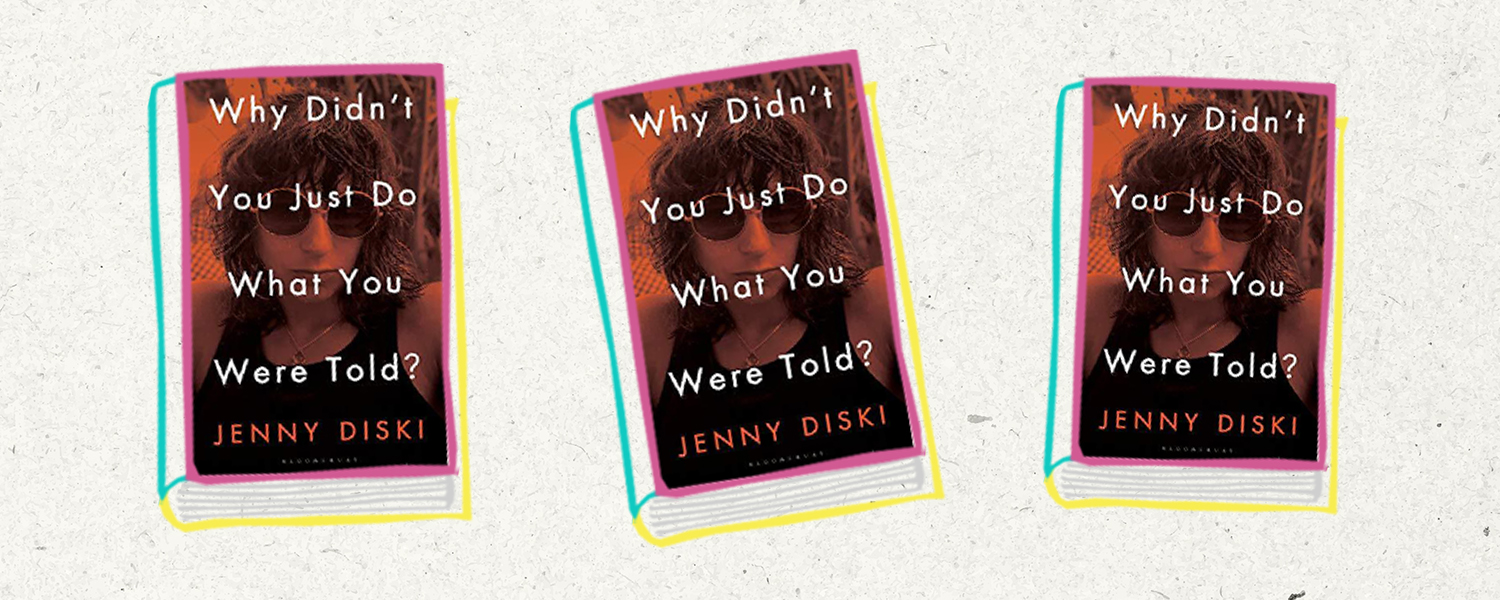
British Jewish author Jenny Diski passed away from lung cancer in 2016 at the age of 68. A prolific writer, she left behind a trove of fiction and non-fiction. London Review of Books editor and Diski’s longtime friend, Mary-Kay Wilmers, selected the essays for this posthumous publication. One of my favorites was Diski’s reflections on Anne Frank, where she writes, “I wonder if to be Jewish is to be by definition lonely in the world — not as a result of the history, but on account of the theology.” Within the essays are topics from her Jewish identity to aging to her cancer diagnosis (here’s the titular essay, which Diski wrote when she was diagnosed with cancer). It’s sad to read knowing Diski is no longer with us, but what a magnificent collection of writings she left.
Read if you’re into: essays. If you love a good essay, don’t miss this one. The Jewish angle: Diski’s musings on her Jewish identity. Get it here.
5. Kate in Waiting by Becky Albertalli (April 20)
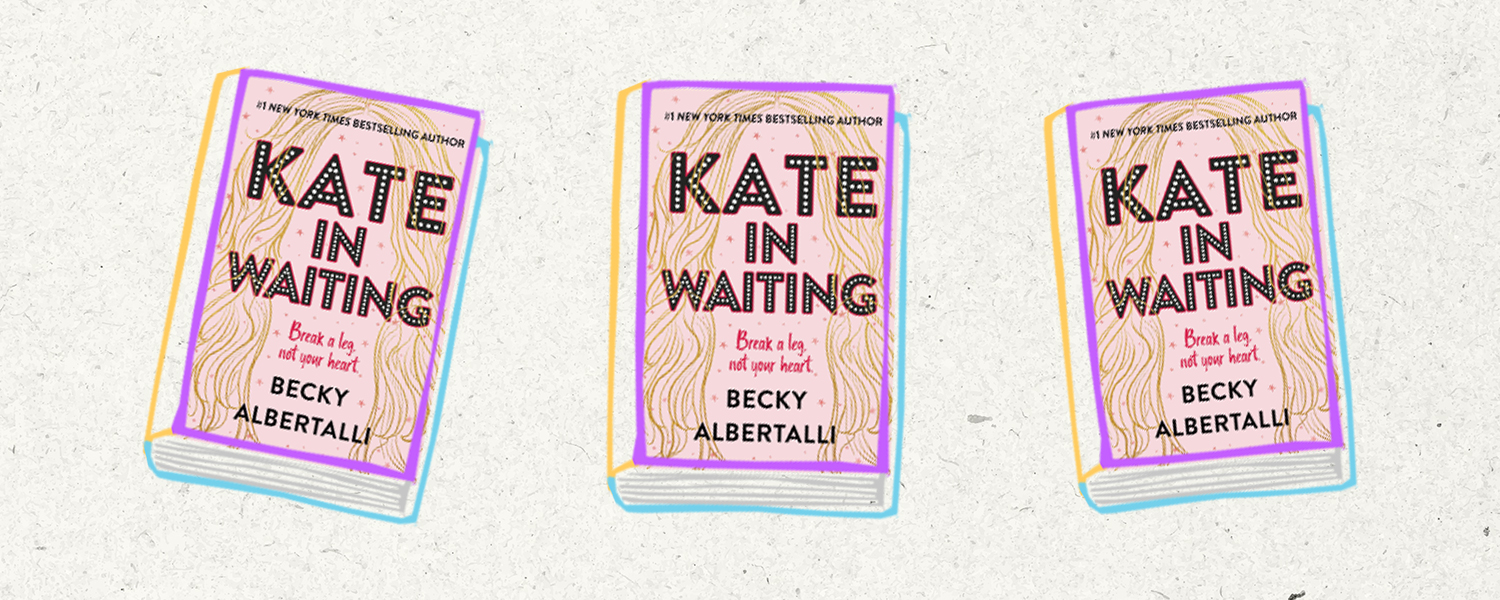
Best friends Kate and Anderson, AKA Andy, have a crush on the same boy, Matt. It’s harmless until Matt shows up at their school in suburban Atlanta and is cast as the lead in the musical — opposite Kate. To complicate things even further, Kate’s brother’s best friend, Noah, is unexpectedly in the musical as well, and she is trying to figure out her feelings — all while trying not to hurt her friend. Here’s the tagline: “Turns out, communal crushes aren’t so fun when real feelings are involved. This one might even bring the curtains down on Kate and Anderson’s friendship.” Becky Albertalli always writes nuanced, diverse YA with Jewish characters (her last book, Yes No Maybe So, co-written with Aisha Saeed, was a delight) — you won’t want to miss this one.
Read if you’re into: friendship. Yes, this is a romance novel, but the friendship is at the center. Also, if you were/are a theater kid, this one’s for you. The Jewish angle: Kate, the titular character, is a Jewish teen. Get it here.
6. Lilyville: Mother, Daughter, and Other Roles I’ve Played by Tovah Feldshuh (April 13)
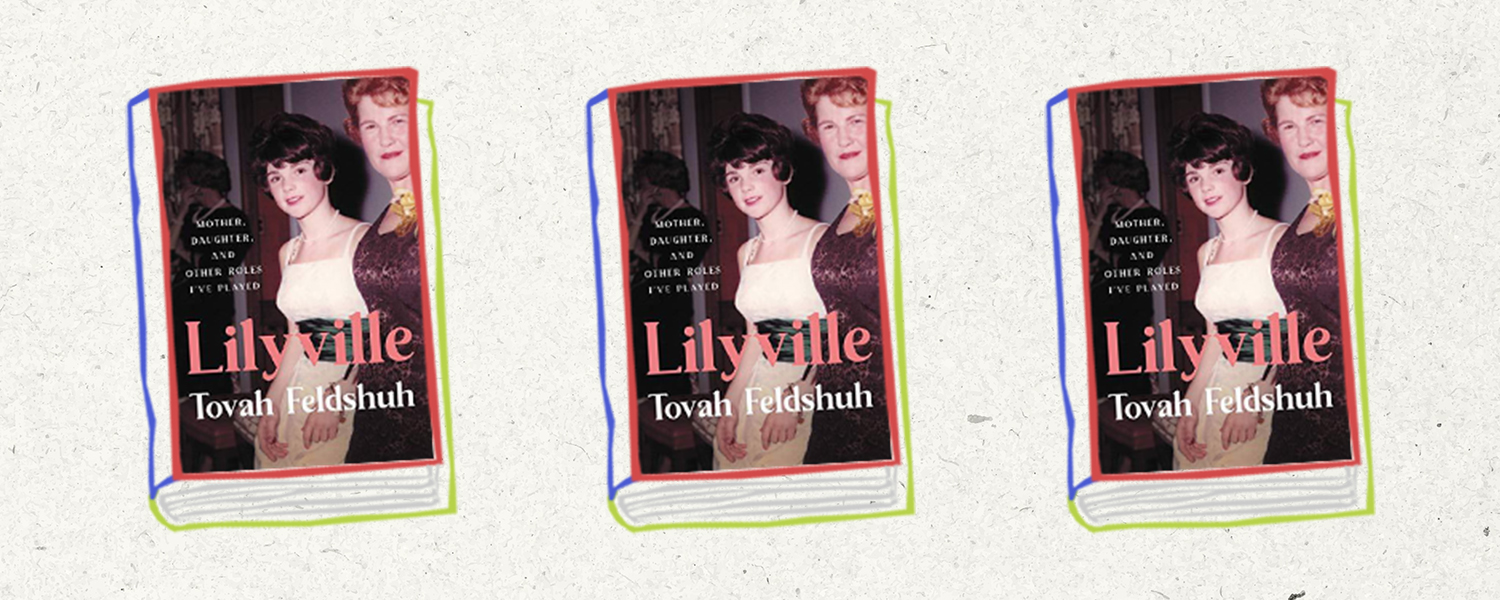
Tovah Feldshuh is a Jewish acting icon. The four-time Tony nominee started her career in Yentl on Broadway, starred as Golda Meir in Golda’s Balcony, the longest-running one-woman show in Broadway history, and so, so much more. Feldshuh also made the leap to TV and films, including The Walking Dead and playing Rachel Bloom’s mom on Crazy Ex-Girlfriend and gifting us with the perfect songs “Remember That We Suffered” and “Where’s the Bathroom?” Her memoir dives into her career, but more importantly, her relationship with her mom, Lily. It’s loosely structured as a play, with a pre-show announcement, acts one and two, and an intermission. The structure works really well for Feldshuh’s reflections on her life — and her personality, and Jewish identity, shines brightly through. Plus, her very Jewish superstitions and her affection for Yiddishisms bring her story to life.
Read if you’re into: Tovah Feldshuh!!! The Jewish angle: Again, TOVAH FELDSHUH!!! Get it here.
7. My Broken Language by Quiara Alegría Hudes (April 6)
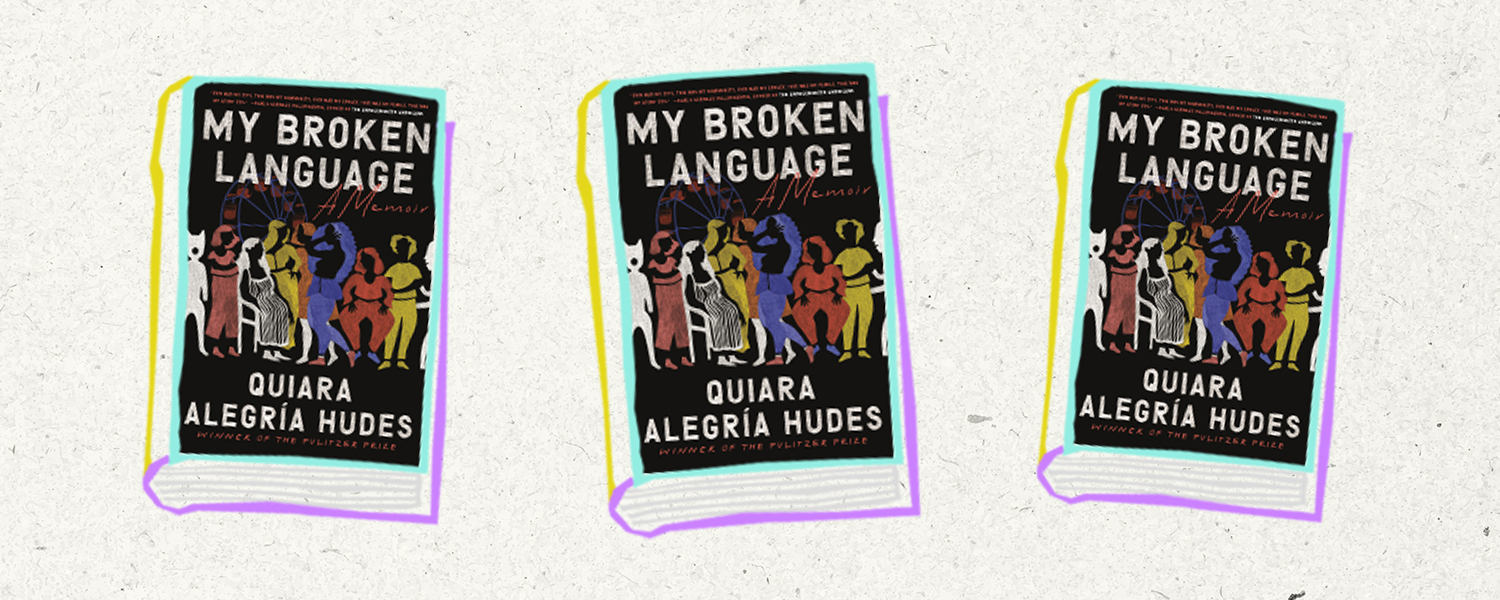
Quiara Alegría Hudes is a Pulitzer Prize-winning playwright, and her new memoir is an incredible look at her journey into writing plays. Born in West Philly to a Jewish dad and a Puerto Rican Taíno mom, her parents split when she was young and she was raised by her mom and Puerto Rican stepdad, whom she calls Pop. She writes about finding her place in the world, especially as her mom gets into the practice of Santería (an African diasporic religion with roots in Cuba), figuring out what language is hers and how to tell the story of the women in her family. “My first language was English, my second Spanglish, my third Spanish, and my fourth a bookish rudimentary Santería-Lukumí.” I love how vivid the women in Quiara’s family are in the story — particularly her mom — and how you get a real sense of the matriarchy that raised her. “You are a child of three catastrophes. You are born of three holocausts. The Native. The African. And the Jewish. You are a descendent of survivors. It’s in your blood. The resilience. The deep memory and the experience of survival. Mom had, in my youth, cornered me to whisper this incantation.” And what a story of her resilience it is.
Read if you’re into: memoirs, playwrights, coming of age stories, Latina stories. The Jewish angle: Quiara is Jewish! Though I’ll note that My Broken Language is not about her Jewish identity — but rather focuses on her mother’s family and heritage. Bonus: Quiara wrote the screenplay for In the Heights, the movie adaptation of Lin Manuel-Miranda’s hit musical being released this summer! Get it here.
8. Town Crier by Sarah Matthes (April 13)
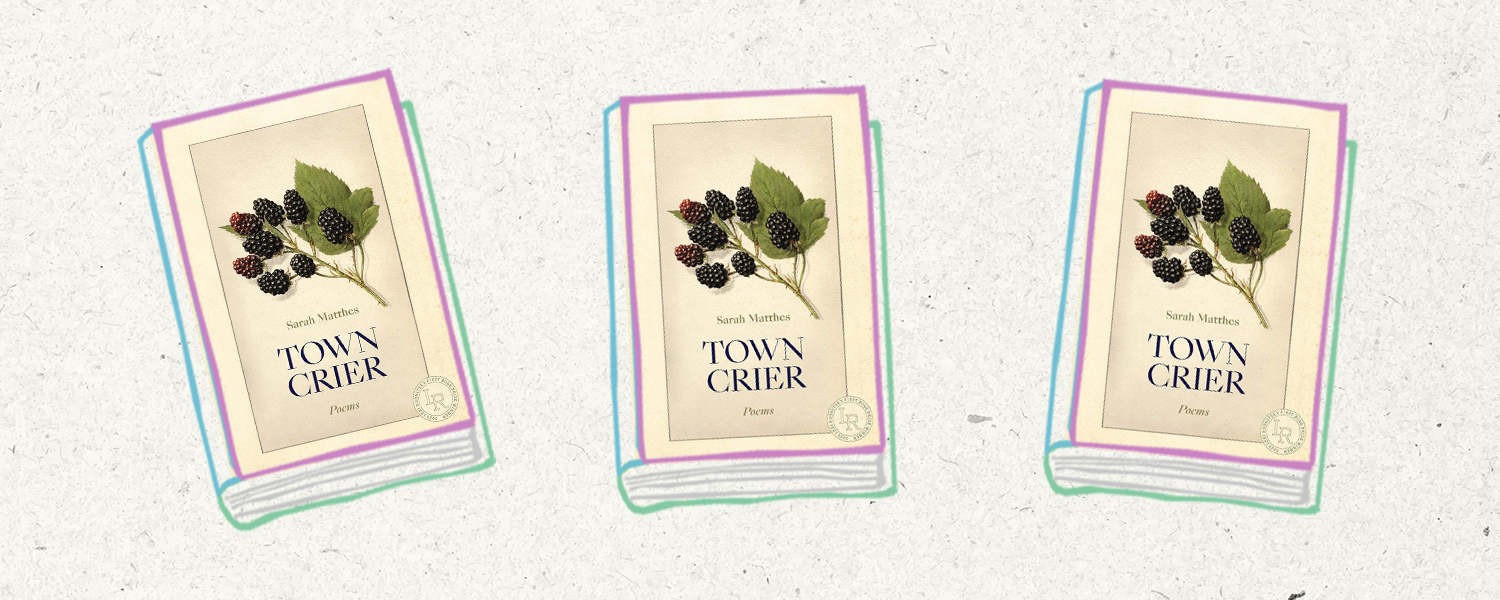
Poet Sarah Matthes won the 2020 Lexi Rudnitsky First Book prize, and her first collection comes out with Persea Books this month. Matthes’ voice is both very funny (her timing is excellent, even on the page) and achingly sad. The loss of her close friend, fellow poet Max Ritvo, runs through the book, unifying all the disparate moments within it. Town Crier is also very Jewish. It contains not one, but two poems called “Golem,” one of which is about its author making the anthropomorphic being from all the hair she’s ever removed from her body; in the other, biblical Adam benefits from his lack of rib to do an activity of which many men dream (just read it). Other poem titles include “Accidental Yahrzeit” and “613 Mitzvot.” Here’s just a taste of Matthes’ wit and keen insight: “What kind of mind / is unable to recognize the difference // between a chipmunk in mourning / and a chipmunk at lunch?”
Read if you’re into: poetry, especially Jewish poetry. The Jewish angle: Did you read those poem titles!? Get it here.
Other Jewish Books of Note Coming Out This Month:
While I have not personally read these books yet, they are on my radar as books Jewish readers may be interested in checking out.
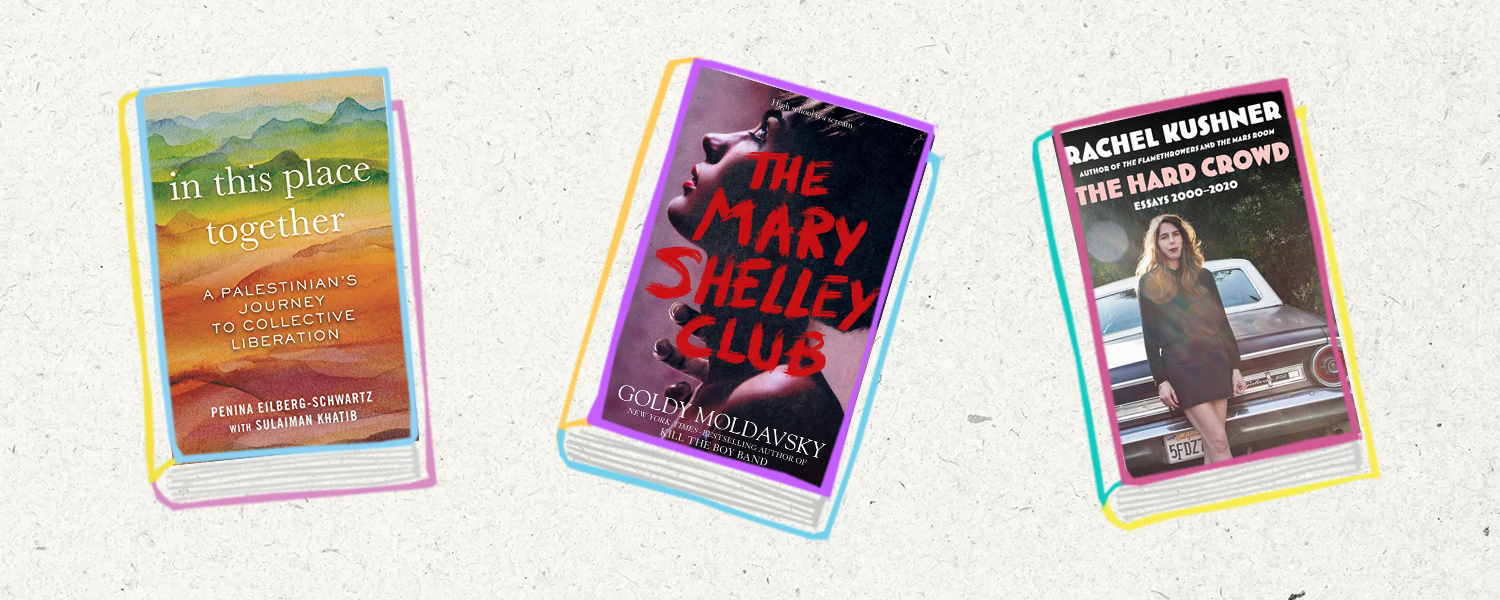
- Something Unbelievable, by Maria Kuznetsova, a grandmother-granddaughter saga inspired by Maria’s own grandmother. Tells the tale of a new mom who discovers parallels between her life and her grandmother’s escape from the Nazis. (April 13)
- Goldy Moldavsky, a Jewish Latina author, is back with her second novel, The Mary Shelley Club, a YA horror about a series of pranks gone wrong at a Manhattan prep school. (April 13)
- Patrick Radden Keefe, author of Say Nothing: A True Story of Murder and Memory in Northern Ireland, returns with a look at the infamous Jewish pharmaceutical family, the Sacklers, in Empire of Pain: The Secret History of the Sackler Dynasty. (April 13)
- Palestinian peace activist Sulaiman Khatib co-writes In This Place Together: A Palestinian’s Journey to Collective Liberation with American Jewish writer Penina Eilberg-Schwartz, an “intimate and political” memoir about the struggle for justice in Israel-Palestine. (April 13)
- Rachel Kushner has a collection of essays from the last two decades, The Hard Crowd: Essays 2000-2020. (April 6)
- Israeli actress and activist Noa Tishby’s Israel: A Simple Guide to the Most Misunderstood Country on Earth. According to Publisher’s Weekly, “Tishby is a brisk and informative narrator, though her approach is more likely to confirm biases than change minds.” (April 6)
- Philip Roth: The Biography by Blake Bailey, a biography of the famed Jewish author — which is already not without its fair share of controversy. (April 6)
- Joshua Jelly-Schapiro’s Names of New York: Discovering the City’s Past, Present, and Future Through Its Place-Names dives into a history of New York. (April 13)
Happy April! Happy reading! Even more recommendations this way!
Disclosure: This post contains affiliate links, which means we may receive a commission if you click a link and purchase something that we have linked to. While clicking these links won’t cost you any extra money, they will help us keep this site up and running. Thanks!
